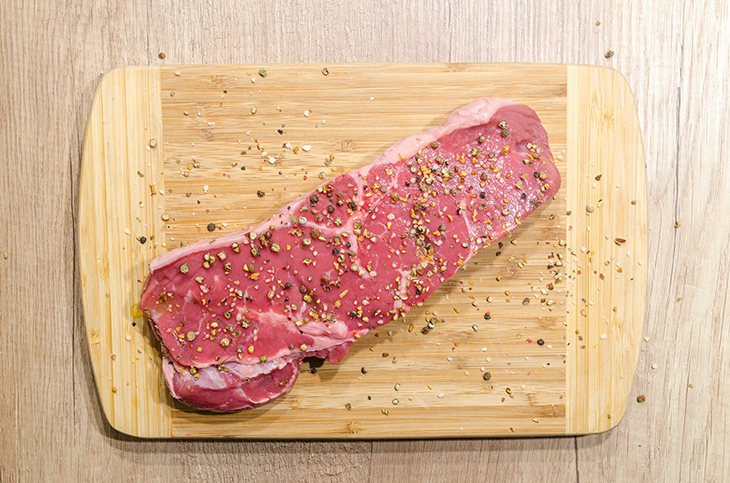
If you happen to be prone to urinary tract infections, or UTIs as they’re otherwise called, even if you follow preventive measures like opting to take showers instead of baths, urinating after sex, or staying hydrated, a new study shares that the solution could be as simple as changing your diet.
The study reveals that strains of E. coli bacteria found in meat could be responsible for over half a million UTIs annually in the United States.
Senior study author Lance Price, PhD, who is co-director of the Antibiotic Resistance Action Center and professor of environmental and occupational health at George Washington University in Washington, D.C. says, “It’s a pretty surprising finding, given that this kind of E. coli is not actively monitored in the food supply or among food-production animals by the USDA, FDA, or CDC in the United States.”
DNA Shows Meat Consumption Could Cause UTIs
Published in the journal One Health, the study involved analyzing the DNA of nearly 1,200 samples of E. coli taken from infected individuals’ urine and blood, as well as the DNA of more than 1,900 samples of E.coli from raw meat, including turkey, chicken and pork. The researchers found that approximately 8 percent of UTIs could be attributed to E. coli from meat, equating to potentially 640,000 cases of UTI per year.
However, one limitation of the study is that all samples were collected from just one U.S. city. This means that the results may not fully represent the situation nationwide.
How Eating Meat Could Lead to UTI
William Schaffner, MD, professor of infectious diseases at Vanderbilt University Medical Center, explains that while the findings focus on just one city, they remain compelling since E. coli is the leading bacterial cause of UTIs within the United States. Dr. Schaffner, who was not part of the study, shared on the unexpected discovery that such a substantial number of UTIs – over half a million – are estimated to result from E. coli bacteria acquired through food consumption.
“It was a surprise that such a large number of urinary tract infections — over a half-million — are estimated to be caused by the E. coli bacteria which we acquire from the food we eat,” Dr. Schaffner shares.
The Centers for Disease Control and Prevention (CDC) explain that while most strains of E. coli are harmless, some can cause serious infections, including those that originate from animals. Infections occur when bacteria from unclean hands or the rectum enter the urethra and travel to the urinary tract.
UTIs are more common in women and are usually associated with such factors as having previous UTIs, engaging in sexual activity, those older in age, those with poor hygiene, as well as young children going through potty training. Some symptoms of E. coli include pain or burning during urination, frequent urination, blood in urine, and pressure or cramping in the abdomen or groin. While UTIs tend to be the most common type of bladder infection, they can also eventually progress into something worse, such as serious kidney infections that are accompanied by other symptoms, like fever, lower back pain, chills, nausea, and vomiting.
How To Prevent UTIs
When it comes to UTI prevention, the CDC recommends the following:
- Urinate after sexual activity.
- Stay well hydrated.
- Take showers instead of baths.
- Limit douches, sprays or powders in the genital area.
- Wipe front to back after using the bathroom.
Based on the study’s results, safe handling of meat may also be added to this list of preventive measures. Dr. Price suggests, “All the same safe handling principles apply for this kind of E. coli as are recommended to prevent other foodborne infections.”
This includes:
- Keep other foods away from areas where you handle raw meat.
- Use separate cutting boards, knives, and bowls just for raw meat.
- Cook meat thoroughly.
Following these instructions, it will help lessen the transmission of any E. coli in raw meats to other foods you eat, Dr. Price adds. He also explains that cooking meat kills the bacteria, so stir-frying food or mixing them together on your plate once you prepared them isn’t an issue either.
Moreover, Dr. Price notes that buying meat products labeled “raised without antibiotics” or “USDA organic” can help because if they do happen to have E. coli, it’s less likely to be a strain that’s resistant to antibiotic treatment.
Dr. Schaffner also notes that another common hygiene tip to minimize E. coli exposure from meats is “Always wash your hands and cutting surfaces thoroughly when preparing food. Also, wash your vegetables and salads thoroughly.”



